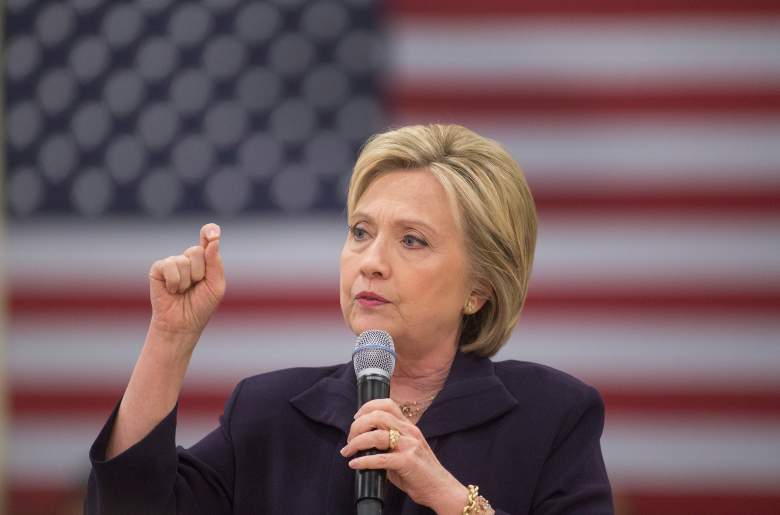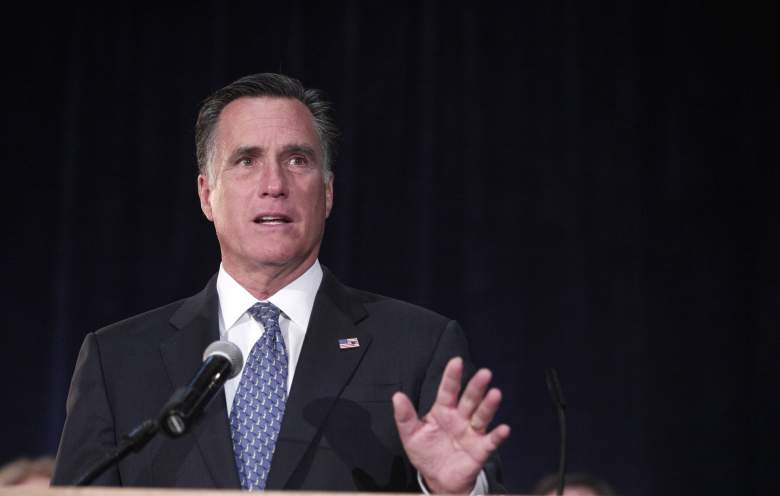
Donald Trump appears to be in a tight race in Texas. (Getty)
The Texas primaries for both the Republican and Democratic parties occur on Tuesday, March 1. Voting will be open to registered voters from 7:00 a.m. to 7:00 p.m. CT.
Texas is one of many states holding its primaries on Super Tuesday. It may be on the same day as many states, but given the number of delegates it is seen as the most important Super Tuesday state by both parties.
The Republican party has five candidates competing for the nomination. However, it is largely seen as a three-person race between Donald Trump, Marco Rubio and Ted Cruz. On the Democratic side, Hillary Clinton and Bernie Sanders are the only candidates competing for the nomination.
Here’s what you need to know.
1. Texas Is an Open Primary

Bernie Sanders is a heavy underdog in the Texas Democratic primary. (Getty)
To vote in either the Republican or Democratic Texas primary, Texans had to be registered to vote by February 1. For the first time in a presidential election, Texas is requiring voters to present a photo ID.
The Texas voting website has a list of the seven acceptable forms of identification. Texas voters can visit this website to confirm their registration status.
Texas held early voting from February 16-26 at various early voting locations. In Texas, voters are able to choose whether they want to participate in the Republican or Democratic primary.
2. Ted Cruz & Donald Trump Appear to be in a Close Race to Win Texas

Ted Cruz is fighting to win his home state. (Getty)
According to RealClear Politics, the latest polling numbers have Cruz as a slight to moderate favorite over Trump in Texas. Cruz has represented Texas in the Senate and is hoping his home field advantage will help him win the state. Texas is a must-win state for Cruz if he hopes to keep up with a surging Trump who has won three straight primaries and caucuses.
A poll conducted by Monmouth University on February 22-24 has Cruz with a 15 percentage point lead over Trump. Another poll conducted by Emerson has Cruz with just a one point lead over Trump.
RealClear Politics has Cruz leading in Texas by an average of 7.2 percentage points. Given it is the state with the most amount of delegates, a heavy focus will continue to be paid to Texas by all the remaining candidates.
3. Polls Show Hillary Clinton With a Sizable Lead in Texas

Hillary Clinton looks to have a sizable lead in Texas. (Getty)
Early polling data shows Clinton is set to win the Texas primary on Super Tuesday by a sizable margin. RealClear Politics has Clinton with an average lead of 26.3 percentage points over Sanders in the early polling numbers.
While the primaries do not always go according to early polling, the data suggests Sanders has an uphill battle on Super Tuesday. According to RealClear Politics, in polling done in eleven of the Super Tuesday primary and caucus states, Sanders only has a lead in two of these states. Based on the polling, Sanders is only projected to win in Massachusetts and Vermont.
One thing that allows the Sanders campaign to remain hopeful is the fact that the delegates will be split proportionally to the results in almost all of the Super Tuesday states. Sanders hopes he can at least keep it close in the states that he is projected to lose.
4. Texas Has the Most Super Tuesday Delegates at Stake for Both the GOP & Democrats

Donald Trump hopes to add Texas to his growing list of primary victories. (Getty)
The reason Texas has so much focus on it during primary season is the number of delegates it holds. The state represents the highest number of delegates that has been at stake for both parties so far in the primaries and caucuses.
On the Democratic side, there are 222 delegates at stake on Super Tuesday. An additional 29 “superdelegates” can be pledged to either candidate at the July convention regardless of the outcome on Tuesday night.
There are 155 delegates at stake for the Republican candidates. Both parties are assigning the delegates using a proportional method meaning they will be given to multiple candidates based on the results. The Republican party does have a provision for a winner-take-all trigger under certain conditions that are detailed here.
5. Mitt Romney Won the 2012 Texas GOP Primary & Eventually the Republican Nomination

Mitt Romney won the 2012 GOP primary. (Getty)
While it is possible to win the presidential nomination for either party without winning Texas, the Texas delegates would be a huge boost to the candidates that win especially if they are able to win by a sizable margin. Mitt Romney won the 2012 Texas GOP primary with 69 percent of the votes and eventually won the Republican nomination.
John McCain won the 2008 Texas GOP primary by over 13.4 percentage points and also went on to win the Republican nomination. On the Democratic side, Clinton won the 2008 Texas primary by just over three percentage points but lost the nomination to Barack Obama. If she is able to win the 2016 primary by the margin the polling numbers suggest, she would have a greater advantage this time around as she would be able to acquire more of the delegates.
